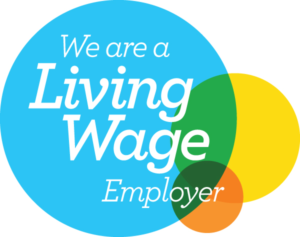Frequently asked questions
- Why do young people end up homeless?
-
Family or relationship breakdown is the most common reason. For example, a parent or carer has a new partner, which causes friction within the household. Increasingly family homes are becoming overcrowded for a variety of reasons. Some young peoples’ tenancies may have broken down or ended. Others may be fleeing abuse or fear of violence.
- How long would a young person stay with me for?
-
Nightstop is arranged on a night by night basis for up to two weeks. With Supported Lodgings, a placement would last from a few months to up to a year.
- Is it safe?
-
We carry out Police National Computer (PNC) checks and a full risk assessment on every young person referred to us. We do not place anyone who we feel might be a risk to a host or their household. If necessary, we also speak to agencies working with the young person to make sure we are fully informed about them.
- I’m a single female/male living on my own. Can I choose to accommodate females/males only?
-
Yes, that’s not a problem. We want to ensure that you are comfortable in your role.
- I go out some evenings a week. Will this be a problem?
-
No. For Nightstop, we send out monthly rotas so that we know your availability on a month-by-month basis. You can let us know if your plans change.
- What if there’s a problem when your offices are closed?
-
A member of staff is on call every weekday from 5pm to 9am the next morning. This out-of-hours service is available 365 days a year.
- Do you provide any training?
-
Yes. All our hosts are fully trained before they start hosting.
- How do young people access Nightstop or Supported Lodgings?
-
They are referred to us by partner agencies that are responsible for finding longer-term accommodation. If young people contact us directly, we direct them to the appropriate referral agency.
- What will the young person do all evening during Nightstop?
-
They may want your company and conversation. Others want the privacy of their own room. If they want to go out, you arrange a time for them to return.
- What happens the next day and during weekends?
-
For Nightstop, the young people leave in the morning at a time that suits you, and fits in with their education or work. They may be job-hunting and will have appointments with other agencies supporting them. They may visit friends. Arrangements at weekends will fit around you and your plans. For Supported Lodgings, young people have their own key. Most are in education, work or training during the week.
- Do I get paid for hosting?
-
Our Nightstop hosts are paid £20.00 for every night they have a young person to stay.
Supported Lodgings hosts receive a payment of up to £170 per week. These payments need to be treated as income for tax purposes.
- What about insurance and using my car?
-
If public transport is not available, hosts with adequate car insurance may drive young people and we will reimburse authorised mileage. Hosts are responsible for house and contents insurance.
- Can I host if I rent my property?
-
Yes. Home ownership is not a requirement of hosting and we have several hosts who live in rented accommodation. We do recommend you contact your landlord to advise them of your intention to become a host in order to gain their permission.
- Can I host if I have a lodger or children still living at home?
-
Yes. Having a lodger or other family at your address is not a problem; we welcome households of all shapes and sizes. We would need to complete a DBS check for anyone at the address who is over the age of 18.
- What happens after a young person moves on from Nightstop?
-
Whilst in Nightstop the young person will be working with the agency that referred them to SASH to find a long term housing solution; sometimes there might be mediation to enable a return to family, other typical move on accommodation is: supported lodgings, hostels or private rented accommodation.







